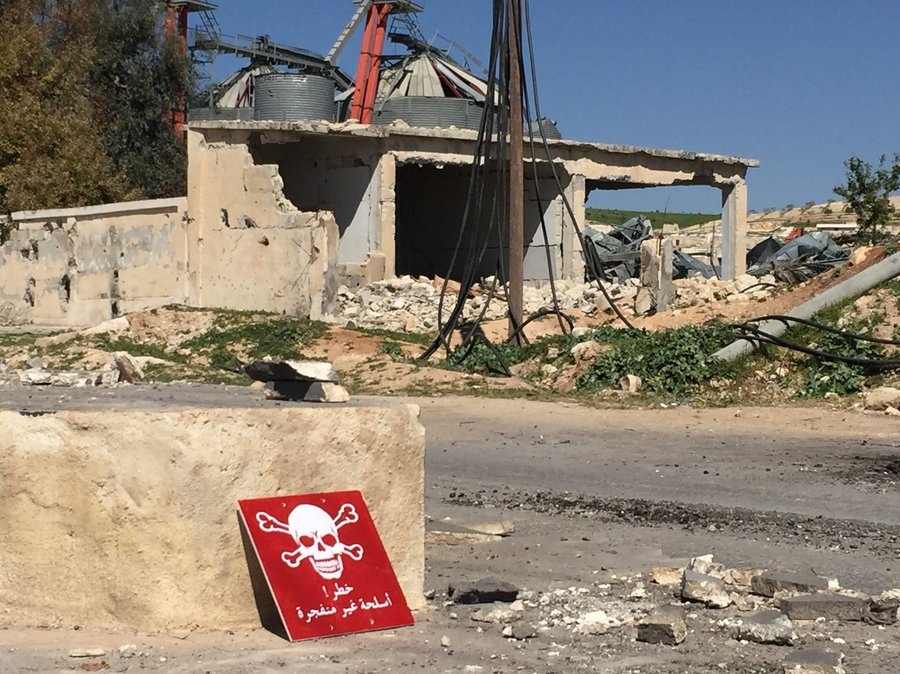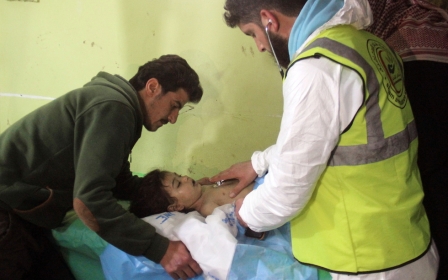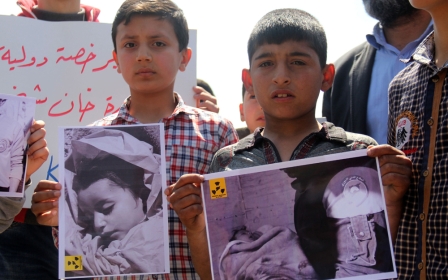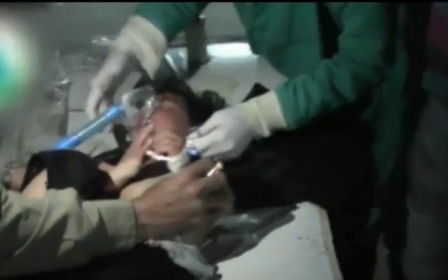Russia vetoes UN resolution to renew Syria gas attacks probe

Russia has vetoed a UN Security Council resolution to renew the investigation into the use of chemical weapons in Syria, including a gas attack in April that killed at least 80 people in the town of Khan Sheikhoun in Idlib.
The draft resolution would have renewed the council-mandated Joint Investigative Mechanism (JIM) and a fact-finding mission by the Organisation for the Prohibition of Chemical Weapons for another year.
Russia was first voted down on its call for a delay of a decision on the mandate until Thursday, when the JIM releases a report on who is responsible for the attack in Khan Sheikhoun. It then vetoed the draft, backed by 11 members. China abstained, while Bolivia voted against renewal.
Britain's UN ambassador, Matthew Rycroft, condemned Moscow for voting against the resolution. He said: "Today, all I will ask is why?"
Washington also denounced the Russian veto on Tuesday.
"We are disappointed, we are very disappointed that Russia put what it considered to be political considerations over the Syrian people who were so brutally murdered," State Department spokeswoman Heather Nauert told reporters.
However, Russia accused the US of forcing the vote as a ploy to make Moscow look bad.
"Let’s not pretend we don’t understand what’s taking place here," Russia's ambassador to the UN Vassily Nebenzia told the council on Tuesday. "It’s intended, once again, to show up and dishonor Russia."
Tuesday's vote is the ninth time that Russia has used its veto in the Security Council in favour of the Syrian government since the conflict started in 2011.
A separate UN-backed investigation in September blamed the sarin gas in Khan Sheikhoun on the Syrian air force. The attack led to the only action by the US against the Syrian government during the Syrian war, when American forces launched cruise missile against a Syrian airbase believed to be the origin of the attack.
In April, local residents described the horror of the incident to Middle East Eye.
"I found bodies scattered all over the area. The local hospital wasn't prepared for the number of dead," Ibrahim al-Seweid said from Idlib.
"They hit a residential area, the vast majority of the casualties were civilian. And it was clear it was some sort of chemical attack - the way the victims looked, and there was foam on their faces.
"I could not stay for long, no one did - there were jets still flying in the sky and we feared another attack."
The JIM has found the Syrian government responsible for several chlorine gas attacks and has also blamed the Islamic State group for using mustard gas.
New MEE newsletter: Jerusalem Dispatch
Sign up to get the latest insights and analysis on Israel-Palestine, alongside Turkey Unpacked and other MEE newsletters
Middle East Eye delivers independent and unrivalled coverage and analysis of the Middle East, North Africa and beyond. To learn more about republishing this content and the associated fees, please fill out this form. More about MEE can be found here.




